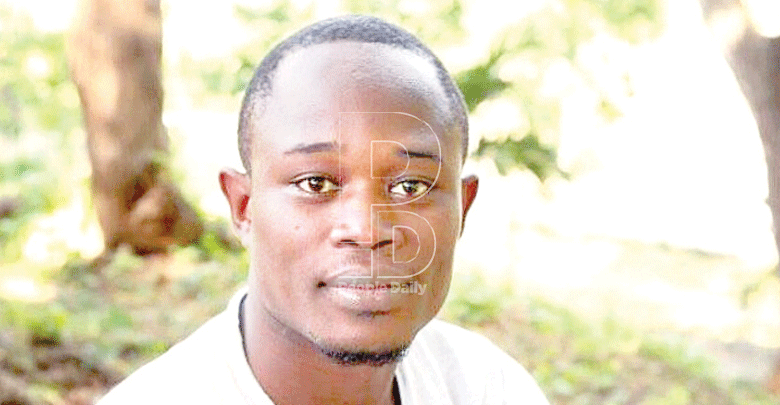Religion: I am a ‘born again’ atheist
By Jasmine Atieno, August 27, 2019Thomas Mlanda was not exactly raised as an atheist. In fact, he comes from a family with great African cultural influence and beliefs.
Born from the lineage of the great African herbalist, Kabwere wa Wanje, worldwide known for his healing powers during his time, it might have come as an expectation to be a champion of traditional beliefs or the existence of African gods and goddesses or even more overcoming that and serving the greater God. But…no, he was not one to move in that direction.
“As a writer, I am also extensive reader, so I have done an extensive research on religion — all religions from Christianity to Islam to Judaism and also done homework on ancient history.
So, I have an in-depth knowledge on all religions and their outpour. Becoming an atheist is a result of a personal journey,” says the young writer and literary theorist.
Human creation
According to Mlanda, religion and maybe God, is among the many things created in the human mind, supported by society and fed by people whose only interest is their personal gain. He chooses to believe in humanity instead of religion, believing in love and peace and the freedom to exist as one would wish.
“Love, freedom and peace are values that all of us, out of the virtue of being human yearn for. On the other hand, religion is more of a set of organised rules that flatten everyone into a single definition and expects them to follow such.
Most of these rules are restrictive in nature and often discriminate against certain groups such as women,” he explains. Mlanda’s paternal grandmother was the 16th wife of Kabwere. His father never subscribed to any religion. But his mother is a conservative Christian.
Life of purpose
“Growing up, I used to go to church, but I didn’t get fulfilment. Then when I grew up and got to do my research, the teachings just didn’t make sense. In 2016, I chose to be an atheist,” he says.
And though he is not married, the law graduate from Kenyatta University says his wife and children would be free to choose their way.
Being an atheist, according to Mlanda, means realising the true essense of oneself. “It is about stepping onto an open space where religious, cultural, racial boundaries do not exist. One seeks to live a life of purpose, morals and service to others,” he says.
The courage and the growing number of young people embracing atheism begs the question; what is the place of these people in society? Does society have room for lack of faith? Or is it just a rebellious trend?
But first things first, what is atheism? According to Wikipedia, this is, in the broadest sense, the absence of belief in the existence of deities. Psychologist Beatrice Nderitu says arguments for atheism range from philosophical to social and historical approaches.
Burden of proof
“Rationales for not believing in deities include arguments that there is a lack of empirical evidence, the problem of evil, the argument from inconsistent revelations, the rejection of concepts that cannot be falsified, and the argument from non-belief.
“Non-believers contend that atheism is a more parsimonious position than theism and that everyone is born without beliefs in deities. Therefore, non-believers argue that the burden of proof lies not on the atheist to disprove the existence of gods, but on the theist to provide a rationale for theism,” she says.
While some religious beliefs can be empowering, Nderitu says others raise a lot of questions resulting in increase of atheism today. In fact, you will be surprised that atheists have more religious knowledge than many believers.
“I will talk about Christianity because 80 per cent of Kenyans are Christians. And you see there is a lot of abracadabra in churches. So many theatrics in the name of performing miracles, women being touched inappropriately at the altar, yet no one would say anything because it’s the pastor doing it. Talk of panda mbegu and others purporting even to raise the dead… and the list goes on,” she adds.
In Kenya atheism was registered as a society in February 17, 2016 under Societies Act, Cap 108, which grants freedom of conscience.
